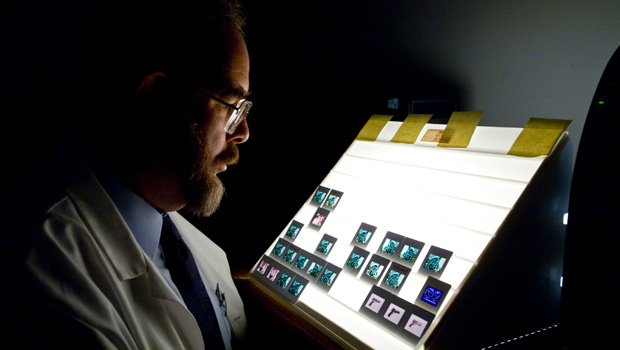The research of Fresno State Psychology Professor Matthew Sharps shows that end-of-the-world prophecies have a lot more to do with human minds than with the fate of humanity.
“We started wondering about the psychology of these beliefs,” Sharps said. “What is it about human cognition, about the way people think, that inclines some people to buy into these ideas?” And a lot of people are buying into them. Around the globe people are preparing for the world to end on December 21, 2012.
After conducting a study of university students, Sharps and his research assistants were surprised to find that approximately 10 percent of the study population firmly believed in the end of the world but that more than half believed that something happening on December 21 was likely or possible.
“Over half the people we studied either believe in the December apocalypse, or are at least willing to entertain it seriously,” said Sharps.
Sharps’ study of 110 university students was co-authored by student colleagues Schuyler W. Liao and Fresno State alumnus Megan R. Herrera, graduate students in forensic clinical psychology at Alliant International University, Fresno. Their article, “It’s the End of the World and They Don’t Feel Fine: The Psychology of December 21, 2012,” will appear as the cover story in the January issue of the Skeptical Inquirer.
The study further showed that dissociation – a psychological tendency to see the realities of the world as remote or diffuse – contributed to belief in the predictive power of the currently popular Mayan December 21 “prophecies of doom.”
Sharps’ research suggests that the tendency to endorse or believe in prophecies of the end of the world was stronger when those predictions were not particularly specific. When specific details were added, such as “prophecies of Nostradamus,” or when specific scientific details were added (asteroid impacts, global warming, or alien involvement), beliefs were significantly diminished.
Sharps notes that there are consequences to apocalyptic thinking, pointing to the economic turmoil following Y2K, and more seriously, to the Heaven’s Gate suicides.
But he believes there is good news in his study results: “This work indicates that you may be able to reduce these types of effects to a significant degree, through a rational scientific evaluation, at a detailed level, of whatever it is you’re being asked to believe.” Sharps says his research stands as a real argument for strong science education and increased awareness of science and scientific principles.
Study findings agreed with Sharps’ previously published Gestalt/Feature-Intensive Processing theory of cognition. Sharps explains: “Gestalt responses, in which analysis of details is generally absent, were associated in this study with credulity and superstitious belief, but feature-intensive thinking, which occurs when you think critically about the details of what you’re being told, was associated with a much healthier skepticism.” The examination of the scientific details of these ideas resulted in clearer thinking, with consequent reduction of superstition and credulity.
Sharps did his undergraduate work at University of Colorado, Boulder. He has Master’s degrees from the University of Colorado, Boulder and UCLA. He earned his Ph.D. at the University of Colorado, Boulder. His research interests include visual cognition, Representational Theory, cognition in forensic contexts and cognitive aging.
For more information on this research or for comment on the December 21 phenomenon, please contact Dr. Matthew Sharps at 559.278.2347 or Matthews@csufresno.edu.
Related Links:





